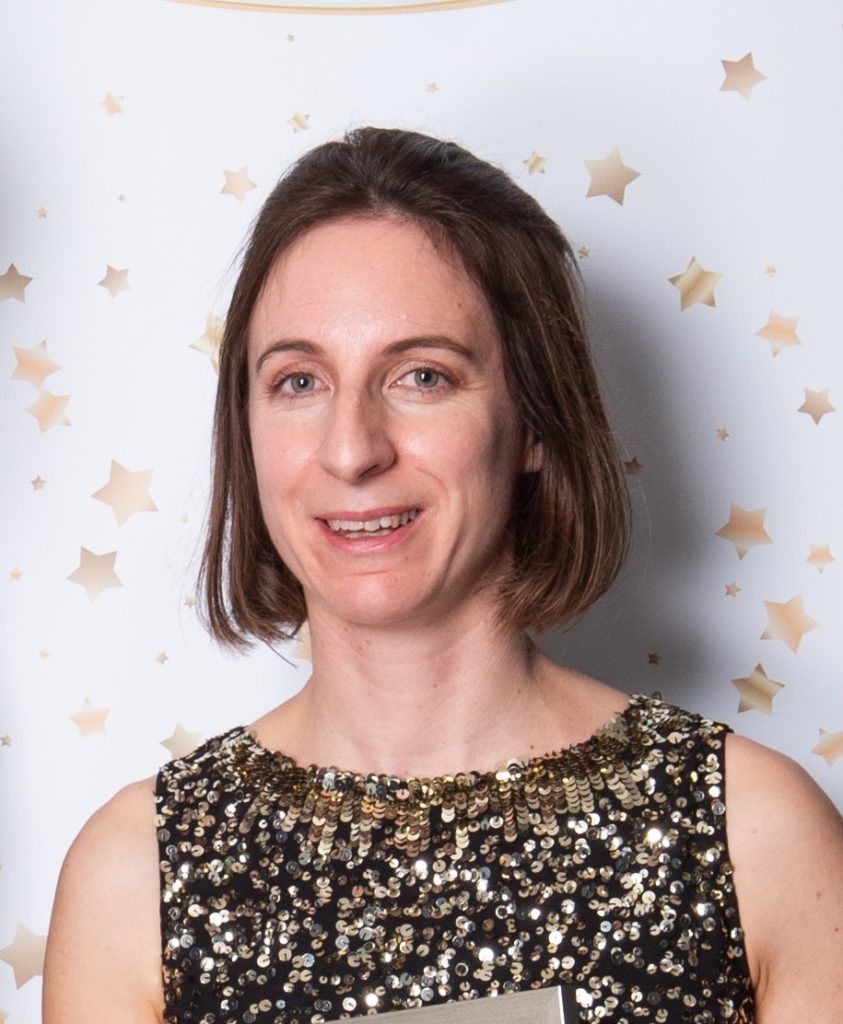The NIHR’s Your Path in Research campaign aims to encourage healthcare professionals to get involved in research or to further their career in research. Joanna Snowball has worked as a dietitian at Oxford University Hospitals since 2005, and for most of that time at the Oxford Adult Cystic Fibrosis (CF) Centre.

“Now that I’m taking steps to do research and contribute to the evidence base about my specialist area, I feel I’m adding a new dimension to my work.”
Even if Joanna has seen the same patients throughout her 14 years in the Oxford Adult CF Centre and they have become “a bit like a family”, she has nonetheless witnessed huge change in the service. When she started, they had about 30 patients; now there are more than 150.
One of the reasons is that people with CF are living longer, and this is largely as a result of new modulator therapies, which improve lung function considerably. While it is hoped these treatments will result in improved quality of life for people with CF and increased life expectancy, one of their effects can be weight gain.
“For most of my career, I’ve been looking after people with CF who are underweight and really struggling to gain weight. Now, with these new treatments, we see people who are gaining weight rapidly and heading towards the overweight and obese BMI categories. It requires completely different dietetic input, and we have no evidence for what to do about it, because it has happened so quickly. You’re not sure what is the right advice to give them.”
It is an area, then, that is crying out for research. “I’m working with people every day in clinic, I’m coming up against the things I’m trying to research every day. But there’s no evidence because it’s such a new topic. It’s hard to re-prioritise our work without evidence,” she says.
Joanna says her ambition was always to get into research, but the opportunities had not presented themselves: “There are very few dieticians that take on a clinical academic role. And unless you know someone who’s done it, you have no idea how to get into it.”
A supportive environment is important, and Joanna says she was encouraged to attend conferences about CF, including the annual European Conference: “I saw people presenting abstracts and thought, ‘I could do that’. You realise that there’s very little research in clinical nutrition generally and even less in CF. There are a lot of evidence gaps. That’s how I got interested in it.”
Joanna’s growing urge to get into research in order to benefit her patients coincided with an opportunity in late 2020 to do a five-month secondment to an Oxford BRC programme working with three other NMAHPs (nurses, midwives and allied health professions) looking into the use of virtual consultations as part of an evaluation of remote clinics at Oxford University Hospitals.
“That was my big introduction into how research worked. Before, I had very little idea what went into producing a paper, how to search for literature, how to do a systematic review, I had no idea about ethics. There were lots of things I didn’t know.”
While doing the secondment, in early 2021, Joanna was encouraged by Dr Helen Walthall, OUH’s Director of Nursing and Midwifery Research and Innovation to apply for a BRC preparatory fellowship, and, given her area of interest, to speak to the BRC’s Theme Lead for Obesity, Professor Susan Jebb, who liked her ideas and put her in touch with Dr. Dimitrios Koutoukidis a post-doctoral research dietitian in the team with similar interests.
“I hadn’t realised how important having an academic supervisor was. He understood what I was trying to do and helped me massively with my application to the preparatory fellowship,” Joanna explains.
For staff in clinical work wanting to get into research, barriers include having to do a lot of work in their own time and having to backfill their role. However, Joanna has been fully supported by the OUH Therapies team, led by Terry Cordrey, to take these opportunities.
Joanna, who normally works three days a week, has decided to go full time, doing her clinical work for three days a week and research on the other two days, which has meant no impact on staffing in her CF team. As she’s doing the research part-time, her fellowship will last 12 months.
Her study will be a qualitative one, interviewing clinicians working in CF about their approach to managing overweight and obesity in people with CF.
“I’m exploring how – or even whether – clinicians are discussing it in clinic, and if they even think it’s an important issue, because currently we have no idea.”
But now Joanna, who will involve patients as part of her future research planning, feels like she is doing something to address this lack of evidence: “It’s now less frustrating because I can tell my patients I’m doing research into this and hoping to find answers. I have patients who are excited about getting involved in my research because there’s someone taking their problem seriously. That feels really rewarding as a clinician.”
Joanna is keen to continue her research alongside her clinical work and is exploring the feasibility of applying for the NIHR’s Pre-doctoral Clinical Academic Fellowship (PCAF) scheme. “I feel more confident now that I’d be able to put together a competitive application,” she says.
“Now that I’m taking steps to do research and contribute to the evidence base about my specialist area, I feel I’m adding a new dimension to my work.”